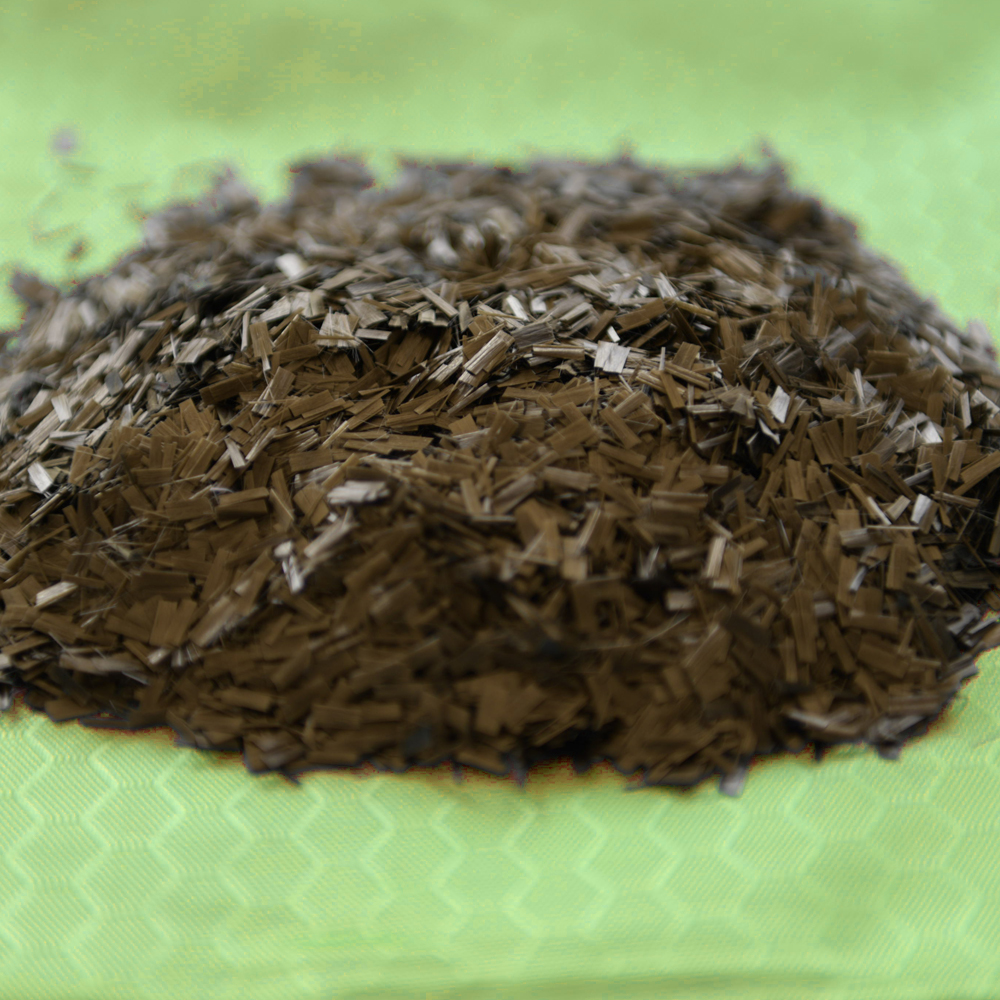Table of Contents
Basalt Fiber Pavement Reinforcement
Basalt fibers are becoming increasingly popular in the construction industry, particularly for use in flexible pavements. These fibers, derived from the volcanic rock basalt, offer a range of benefits that make them an attractive choice for pavement reinforcement.
One of the key advantages of basalt fibers is their high tensile strength. This strength allows them to effectively reinforce pavements, helping to prevent cracking and rutting. In addition, basalt fibers are highly durable and resistant to corrosion, making them ideal for use in pavements that are subject to heavy traffic and harsh weather conditions.
Another benefit of basalt fibers is their flexibility. Unlike traditional reinforcement materials such as steel, basalt fibers are lightweight and easy to work with. This flexibility allows for greater design freedom and can help reduce construction time and costs.
Basalt fibers are also environmentally friendly. Unlike steel, which requires significant energy and resources to produce, basalt fibers are made from a naturally occurring material that is abundant and sustainable. This makes them a more sustainable choice for pavement reinforcement.
In addition to their strength, durability, flexibility, and sustainability, basalt fibers also offer excellent adhesion properties. This means that they can be easily integrated into existing pavement materials, providing seamless reinforcement without the need for additional adhesives or coatings.
Overall, basalt fibers are a versatile and effective choice for pavement reinforcement. Their high tensile strength, durability, flexibility, and sustainability make them an attractive option for a wide range of applications.
One common use of basalt fibers in flexible pavements is in the form of basalt fiber rods. These rods are typically embedded in the pavement structure to provide additional reinforcement and prevent cracking and rutting. Basalt fiber rods are lightweight and easy to handle, making them a practical choice for pavement construction.
| Nr. | Product Name |
| 1 | basalt fiber for road use |
Basalt fiber rods can be used in a variety of pavement applications, including highways, roads, parking lots, and airport runways. Their high tensile strength and durability make them well-suited for heavy traffic areas and areas prone to harsh weather conditions.
In addition to basalt fiber rods, basalt fibers can also be used in the form of basalt road materials. These materials are typically mixed with asphalt or concrete to create a strong and durable pavement surface. Basalt road materials offer the same benefits as basalt fiber rods, including high tensile strength, durability, flexibility, and sustainability.
Overall, basalt fibers are a versatile and effective choice for flexible pavement reinforcement. Their unique combination of strength, durability, flexibility, and sustainability make them an attractive option for a wide range of pavement applications. Whether used in the form of basalt fiber rods or basalt road materials, these fibers offer a reliable and cost-effective solution for reinforcing pavements and ensuring long-lasting performance.
Basalt Fibers for Flexible Pavements Basalt Road Materials
Basalt fibers are becoming increasingly popular in the construction industry, particularly for use in flexible pavements. These fibers, derived from the volcanic rock basalt, offer a number of advantages over traditional pavement reinforcement materials such as steel or fiberglass. Basalt fibers are known for their high tensile strength, resistance to corrosion, and durability, making them an ideal choice for use in road construction.
One of the key benefits of using basalt fibers in flexible pavements is their ability to improve the overall performance and longevity of the pavement. By adding basalt fibers to the pavement mix, engineers can increase the tensile strength of the pavement, reducing the likelihood of cracking and rutting over time. This can Lead to a longer lifespan for the pavement, ultimately saving money on maintenance and repairs in the long run.
In addition to their strength and durability, basalt fibers are also highly resistant to corrosion. This makes them an excellent choice for use in areas with harsh weather conditions or high Levels of Salt exposure, such as coastal regions or areas with heavy snowfall. By using basalt fibers in flexible pavements, engineers can ensure that the pavement will remain structurally sound and intact, even in the face of challenging environmental conditions.

Another advantage of using basalt fibers in flexible pavements is their flexibility and ease of installation. Basalt fibers can be easily incorporated into the pavement mix, either as a standalone reinforcement or in combination with other materials such as asphalt or concrete. This flexibility allows engineers to tailor the pavement mix to meet the specific needs of the project, ensuring optimal performance and longevity.
Basalt fibers are also environmentally friendly, making them a sustainable choice for pavement reinforcement. Unlike steel or fiberglass, basalt fibers are derived from natural sources and do not require the use of harmful Chemicals or processes during production. This makes them a more eco-friendly option for construction projects, helping to reduce the environmental impact of road construction.
In addition to their use in flexible pavements, basalt fibers can also be used in a variety of other road materials. Basalt fiber rods, for example, can be used to reinforce concrete barriers, guardrails, and other roadside structures. These rods offer the same benefits of strength, durability, and corrosion resistance as basalt fibers used in pavements, making them an excellent choice for use in road construction projects.
Overall, basalt fibers offer a number of advantages for use in flexible pavements and other road materials. Their high tensile strength, resistance to corrosion, and durability make them an ideal choice for construction projects where longevity and performance are key considerations. By incorporating basalt fibers into pavement mixes and other road materials, engineers can create infrastructure that is not only strong and durable but also environmentally friendly and sustainable.

